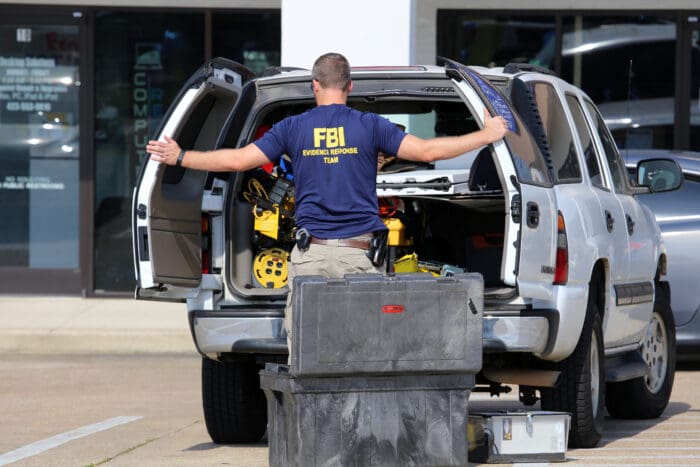Congress and a string of presidents for nearly 30 years have been pushing federal law enforcement to reform and become more transparent. But those four agencies overseen by the Justice Department, among the most prestigious in the country, have been slow to adopt reforms long embraced by big-city police departments, such as the use of body cameras and the release of comprehensive use-of-force data. …
As of this fall, none of the Justice Department’s law enforcement agencies examined by NBC News have fully implemented the use of body cameras. Each agency said it is rolling them out across major cities or divisions, and the Marshals Service has published a map of its current use. The FBI added body-worn camera training to its new agent curriculum at Quantico, Virginia, this year, a spokesperson said. An ATF spokesperson said rollout is “dependent on funding.” The devices are expensive — since 2021, all four agencies have asked Congress for more than $206 million for their body camera programs, according to federal documents. They’ve received slightly over $84 million.
Meanwhile, tensions between local police leaders and federal officials remain. Local agencies that participate in Justice Department task forces can’t release video from such operations, even if their officers are the ones who record it, without permission from the Justice Department, because the video is considered federal record.
Sheriff Michael Chitwood of Volusia County, Florida, which includes Daytona Beach, doesn’t trust that permission to come quickly. “You are going to tell me when something goes down and the camera is running that you have no right to that footage?” he asked. “F— you.”
Chitwood pulled his deputies off a U.S. Marshals task force over the issue this year. “My community has a right to see what happens,” he said.
The FBI and the ATF said they release video when the media asks “as soon as practicable” after having reviewed it for redactions. The ATF added that under “exigent circumstances,” it releases video within 72 hours. The Marshals Service and the DEA didn’t respond to questions about body camera video.
— , , , and in Defying Presidents and Congress, the ATF, DEA, FBI and u.s. Marshals Shroud Their Shootings in Secrecy
